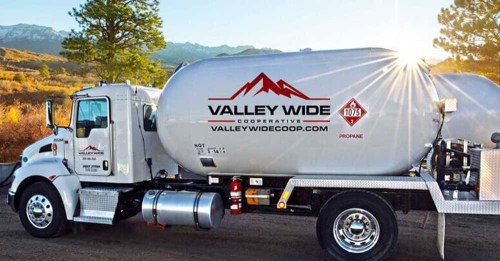Political developments, inflation challenge farm cooperatives
Published 3:15 pm Monday, August 28, 2023

- Individual states have different regulations on fuel, and much fertilizer is purchased overseas, the CEO of Valley Wide Co-op told congressional staffers.
Political developments in Washington, D.C., and abroad and continuing inflation are among the many challenges that cooperatives face in providing inputs to their member customers, a top executive says.
While many businesses face issues such as the cost and availability of labor and the need to navigate regulations, farm cooperatives and their customers are particularly sensitive to high-level government decisions, Valley Wide Cooperative CEO Dave Holtom told a group of congressional aides touring southwest Idaho agriculture operations last week.
Trending
“The decisions that are made from a government at the highest level affect our customers at their farm gate, and it’s not a big road,” he said. “It’s a short trail from those decisions to where we try to operate” as a distributor.
Nampa-based Valley Wide’s profit margin is narrow, at 2-3%, and any political decision “affects us in a big way,” Holtom said. The Ukraine war and various tariff impacts are recent examples.
Fertilizer, a big part of Valley Wide’s business, is sourced globally.
“When there is political disruption at the highest level, we can see our market values change by hundreds of dollars a ton in just a matter of weeks,” Holtom said. As a low-margin distributor, “that can be catastrophic. And it’s hard to take that message to the grower.”
Petroleum and energy policies can vary widely by state, a challenge for Valley Wide’s fuel distribution.
“The differences between states can put the distributor in a very difficult situation where it’s hard to source product in one state and deliver to a farmer in another,” Holtom said.
Trending
For all Valley Wide business lines and the entire economy, controlling inflation is critical, he said.
On an income statement, the interest rate paid to carry inventory and receivables is a one-line entry, Holtom said. In contrast, inflation “affects every line. And if we don’t get inflation under control, it’s a runaway train.”
Inflation is “very tough on a business. We’re facing that today,” he said.
Low margin businesses like Valley Wide “can’t react fast enough to the costs of things coming in,” Holtom said. Meanwhile, most farm and ranch customers cannot pass on higher costs quickly.
The cooperative serves customers in Idaho, Nevada, Oregon, Utah, Washington and Wyoming. It operates in more than 60 communities.
Valley Wide headquarters was one of the stops on the Leadership Idaho Agriculture Foundation congressional aides fact-finding tour Aug. 21-24. Other stops included farms, a dairy, a cattle feeder, a grain mill, a dam and a fresh-food market. Congressional staff members from various states participated.









